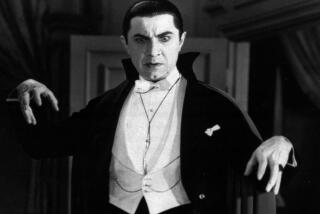Marlon James’ Great American Novel: None (with an ‘American Tabloid’ asterisk)
There is no such thing as the Great American Novel. Nor the great Russian, Swedish, Irish or Papua New Guinean novel for that matter. In fact, once you import the concept, you realize how ridiculous it is. But also how strangely American, mostly because this is one of few countries where such a thing is not exactly taken seriously as much as taken at all. There is not, nor can there ever be, one great novel, but there is a Great American Neurosis, which plays itself out in a Great American Inferiority Complex, which plays itself out in a Great American Exceptionalism, which cuts to the core of everything, including I would bet who has the greatest peanut butter.
This might be Henry James’ fault (or Edith Wharton’s), one of the sad side-effects of being a snob first, novelist second. In that despite his considerable position as the once and forever grand master of the novel, there was still about James a humongous whiff of Brit envy, and nobody was more practiced at exceptionalism than the Brits. Not that one Brit thought himself better than the other. They were just better than everybody else. Something about the 19th century American writer’s eagerness to please, this inferiority complex in the presence of British literature (for no reason), that even now plays out not just in our holding the British novel as the standard for so called social realism, but also the standard for the great novel. This leads to the troubling case of ranking one novel over another.
There is no such thing as the Great American Novel. Nor the great Russian, Swedish, Irish or great Papua New Guinean novel for that matter.
— Marlon James
The truth is no one novel could ever capture the American experience because there is no such thing. Or rather America is far too many things for one novel to ever capture. Maybe the great American novel only needs to capture one American experience, and in that case one could nominate “The Brief Wondrous Life of Oscar Wao” by Junot Diaz. But one could also nominate, “The House on Mango Street” by Sandra Cisneros or “Sabbath’s Theater” by Philip Roth. Or Jonathan Franzen’s “The Corrections.” Or Toni Morrison’s “Sula.” Or Dennis Cooper’s “Frisk.”
Our Critics at Large pick their Great American Novels
Or maybe the great American novel encompasses where we have been, which would push Jean Toomer’s “Cane” to the top of the list. Or maybe it’s not about America at all, but a world stamped with her unmistakable footprint, for better and worse, like “Dogeaters” by Jessica Hagedorn. Next thing you know, the very question of the G.A.N. leaves one with seven possible answers and that’s before we get to perennial list makers, “Moby-Dick” and “Huckleberry Finn.”
Of course, that leaves me being the guy who says the winner is NO WINNER and nobody likes that guy. So while the whole idea of a great anything is pointless and even potentially harmful, if were you to put a gun to my head, or threaten my never to be born children, I would nominate James Ellroy’s “American Tabloid.” Because Noir may have been America’s greatest cultural invention, even if she might not have invented it. Because American Tabloid is the only novel I’ve read so far that realizes that the crucial moments in history are made by people who never make the history books. It’s the rare novel to liberate American outcast language, Jazz talk, street talk, junkie talk, faggot talk, whore talk, and dare to position them as a new canon. And it is that American novel that realized before we did, that our American dream was somebody else’s nightmare.
James is one of our Critics at Large.
More to Read
Sign up for our Book Club newsletter
Get the latest news, events and more from the Los Angeles Times Book Club, and help us get L.A. reading and talking.
You may occasionally receive promotional content from the Los Angeles Times.








